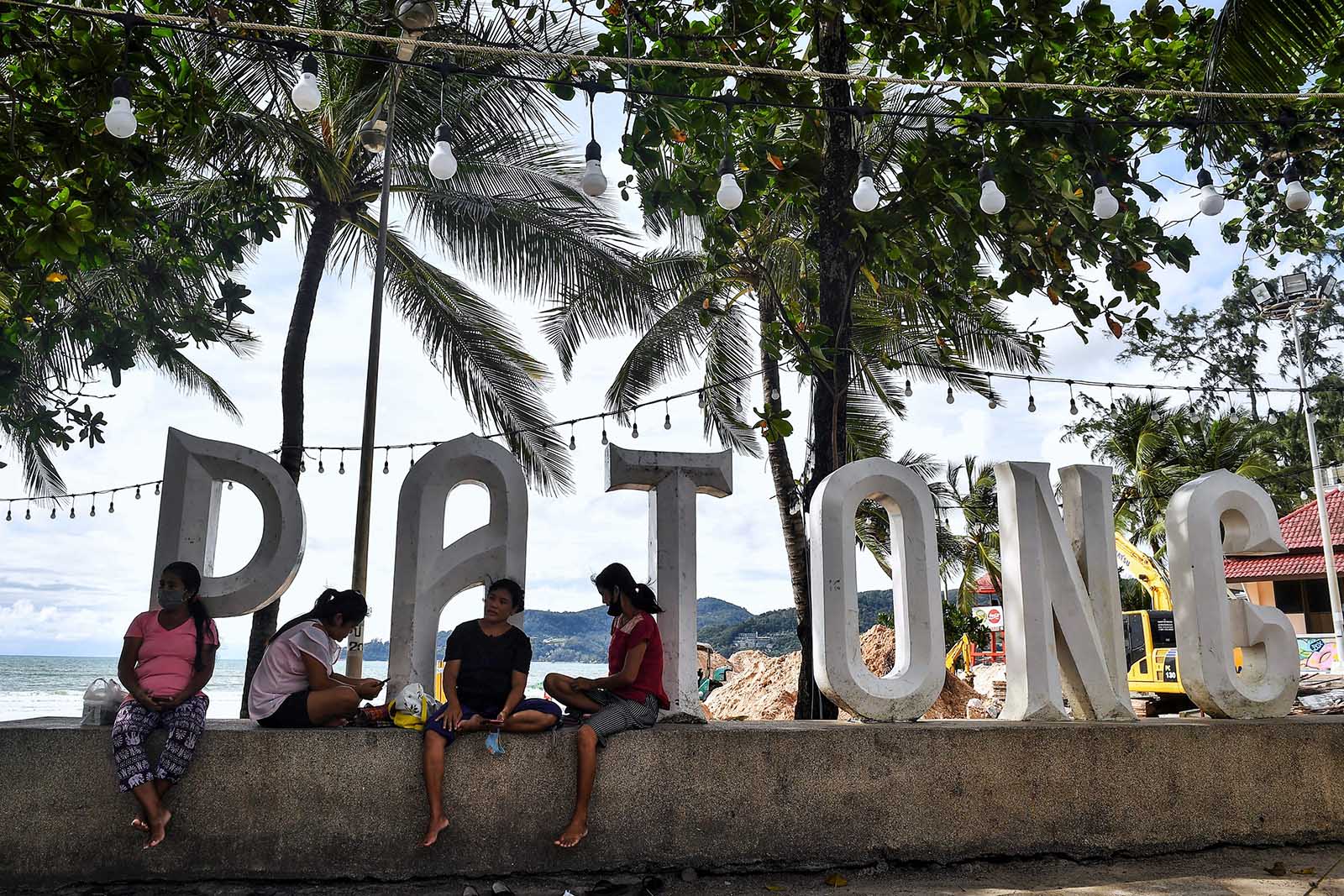
Two years ago, the seaside in front of Seksith Pimolnat guesthouse on Phuket’s Patong Beach was packed. Holiday makers from Siberia, China, and the various corners of the European Union crowded together in a cacophonous revelry.
Today, Patong is deserted. Another casualty of the coronavirus pandemic.
“Many of my friends have had to close their hotels and move back home or find a different job,” Seksith told Thai Enquirer. “For them, whatever plans there are to reopen is too late. They are finished.
Thailand’s hospitality industry is one of the country’s hardest Covid-19 hit sectors. Two lockdowns and a raging third wave of the pandemic have forced hoteliers to temporarily suspend operations or in some cases shut up shop for good.
For those still running, the prospects that a August – October reopening might be postponed is a death sentence.
“We were just recovering from the second wave of the pandemic in January/February this year and now the third wave is beginning to affect us,” said Woramon Inkatanuvat, an executive at the hotel operator The Erawan Group.
A survey of 188 hotels nationwide by the Thai Hotels Association said that 47 per cent of hotels had liquidity to keep their business afloat for around three months, with 13 per cent under temporary closure.
The majority of the closed hotels are expected to reopen in the fourth quarter of the year, as the situation improves, according to the survey.
“The third wave has wreaked havoc on hotel businesses, exacerbating a dire situation,” the association president, Marisa Sukosol Nunbhakdi, said in the press release.
Marisa said she doesn’t expect any kind of normalcy to return until at least 2023.
Marisa warned that it might take longer if the government is unable to contain the latest outbreak and said the consequences on the hospitality industry would be dire.
She urged the government to introduce relief schemes to support employee salary payment, deft moratorium programmes, and increase domestic travel stimulus policies.
Marisa said that the hotels were still keeping people employed with reduced work hours and moving things around but that this would not last forever.
Rough times ahead
According to Woramon, The Erawan Group, one of the many luxury hotel groups in Thailand, reported net loss of 492 million in the first quarter of 2021. They are not the only hotel group, luxury or otherwise, to report a loss.
Rising concerns over the third wave of the pandemic plus a partial travel lockdown have resulted in less demand to travel for work and leisure, as Covid-19 control measures especially in Bangkok and related provinces were reimposed.
Any potential recovery in the second half of 2021 will depend on a myriad of factors but many hotels are banking on the government to stick to its tourism bubble plans, industry insiders told Thai Enquirer.
“The government needs to manage this pandemic better or else we’re all going to go under. We need these bubble programs that have been planned between July to October,” a senior manager at Minor International told Thai Enquirer.
Preserving liquidity remains the priority for all hotels, the source said, because we just don’t know what will happen.
For smaller guesthouse owners like Seksith, however, preserving liquidity is not an option.
“I am betting everything on this July reopening for Phuket the government promised,” he said. “If it doesn’t happen, I will have to sell and do something else with my life.”